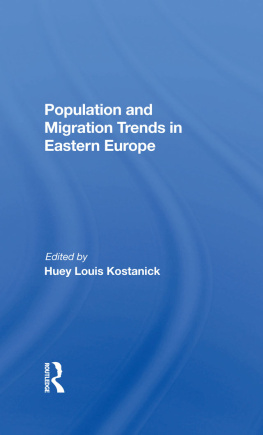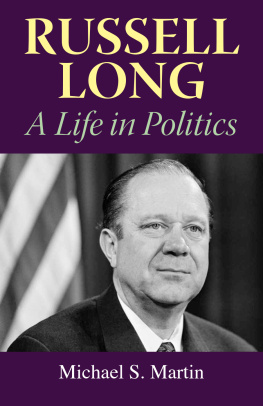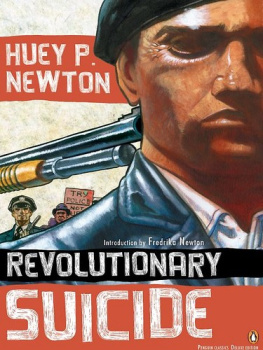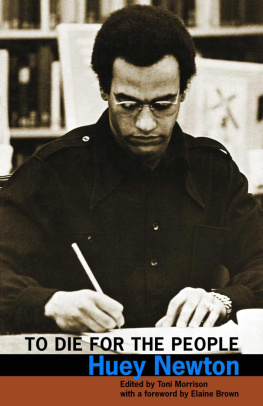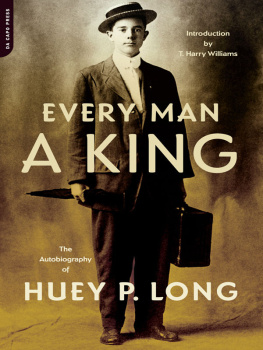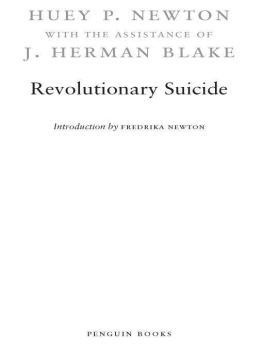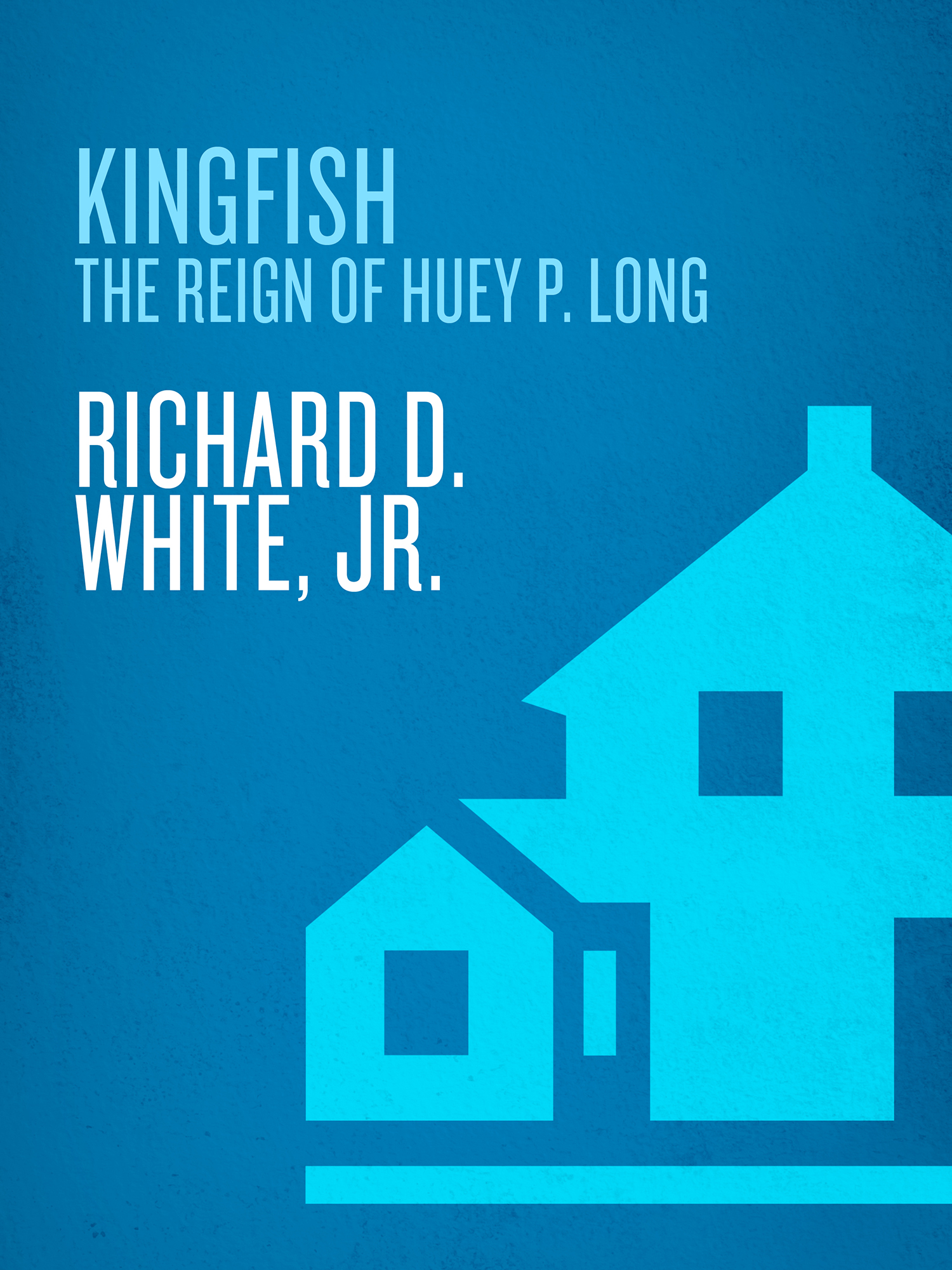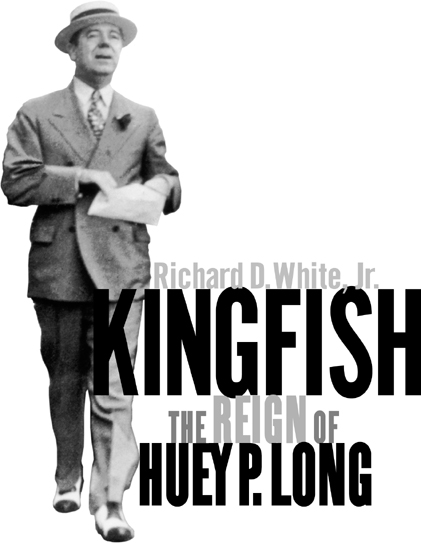INTRODUCTION
L isten, there are smarter guys than I am, Huey Long once admitted, but not in Louisiana. At the time Huey made the boast, many Louisianans agreed with his oversized opinion of himself, that he was the fastest-thinking, fastest-talking politician in the state and, if not the smartest, indeed the most shrewd and powerful. From 1929 until his violent death in 1935, he seized more control over an American state than any politician before or since. By the end of his tempestuous reign as governor of Louisiana and later as United States senator, he dominated almost every aspect of government in his native state. He used political whim to hire thousands of state government workers, from cabinet secretaries to laborers shoveling gravel onto highways, while thousands of local government workers, including schoolteachers, sheriff's deputies, and courthouse clerks, fell under his political mastery. He orchestrated elections, padded voting lists, and directed the counting of ballots. He assaulted freedom of the press by proposing a gag law that prohibited newspapers from printing malicious, scandalous, or defamatory stories about him. He deployed the state militia as his personal police force and declared martial law in cities that refused to submit to his mastery. He packed the courts with his loyalists to ensure that his increasing power went unchecked. Most blatantly, he dominated the state legislature and ordered it to slavishly pass hundreds of bills that increased his power, destroyed his enemies, and stretched the very limits of constitutionalism.
Paradoxically, Huey Long did more good for the people of Louisiana than any politician before or since. In the midst of the Great Depression, he built nine thousand miles of new roads and more than a hundred bridges over swamps and rivers, pulling Louisiana from the horse-and-buggy days into the age of modern transportation. He gave free school-books to students, allowing thousands of poor children to attend school, and his adult night schools taught 175,000 illiterate Louisianans to read, including many poor blacks. He doubled the number of beds in the state's charity hospitals. He raised the state university to national stature in size and scholarship. He lessened the burden on poor farmers by giving a homestead property tax exemption and allowed thousands of them to vote when he abolished the poll tax.
Huey possessed enormous talent but grievous flaws. Both saint and sinner, he mixed frankness with hypocrisy, first-rate brains with buffoon-ery, compassion with savagery. Controversy followed him everywhere and scandals swarmed about his head like mosquitoes. Ambitious, aggressive, uninhibited, exceedingly colorful, and mesmerizing, he received no lukewarm descriptions. To thousands of ill-housed, ill-fed, and ill-clothed Louisianans, Huey incarnated the savior of the common man and the liberator of the downtrodden. He promised hope in a land of hopelessness and brought humor to a saddened people. When he poked fun at the poor folk, they felt he was also poking fun at himself, and they loved it. They supported him staunchly, almost blindly, not worrying that he had built a ruthless political machine or that he allowed some corruption in state government or even that he pocketed some money himself. Seeing a man whose musical heart loved the songs of the common people, the country people idolized him. They did not merely vote for him, they worshiped the ground he walked on, a newspaperman observed. He was part of their religion.
While thousands revered Huey, thousands more despised him. His enemies called him a clangorous demagogue and loudmouthed blatherskite and branded him an ill-balanced and domineering radical whose populist notions were not only impractical but ridiculously unattainable. Huey demanded that he rule and rule absolutely, and to do so he crushed anyone who stood in his way. His Machiavellian lust for power led him to ruthlessly destroy his enemies' political careers, ruin their businesses, raise their taxes, and fire their relatives from government jobs. He took a savage delight not merely in beating opponents but in humiliating them. His reign of power eventually split the state of Louisiana into a bifactional political battleground where those who wanted to sanctify him squared off against those who wanted to crucify him. There was no middle grounda person had to be either for or against Huey.
Once he had grabbed tight control of Louisiana, the ambitious Huey was elected to the United States Senate, where his wild antics, uncouth manners, and long-winded filibusters made him the most entertaining show in Washington. He led a controversial crusade to limit the income of millionaires and redistribute their wealth to the poor. He proposed that Congress give a $30 pension for all needy persons over sixty, limit work hours to thirty a week, and give a free college education to deserving students. By 1935, he had organized his followers into the Share Our Wealth Society with eight million members nationwide. Although economists discarded his notion to redistribute wealth as rash and impractical, a vast and growing number of poor Americans believed his plan was a workable answer to the Depression. Disregarding fiscal realities, he defended himself with the Scriptures. I never read a line of Marx or Henry George or any of them economists, he admitted. It's all in the law of God. With his radical proposals and rude demeanor, Huey became Franklin Roosevelt's archenemy and most vocal critic of the New Deal. By 1935, he had announced he was running for president.
How could Huey Long do so much good and so much harm for so many people in such a short time? Today it is difficult to understand how one man could capture such absolute control over a modern, democratic state. Many factors contributed to his rise to near-absolute power. He possessed unflagging energy, razor-sharp political savvy, absolute brilliance, and, most important, an unquenchable thirst for power. He also had help from others, including a horde of bootlicking followers who did his bidding without question, disorganized opponents who never fully recognized his cutthroat ambition, and a Depression-weary population searching for someone to promise them a better life.
Huey defied description. While his critics portrayed him as a demagogue or dictator, neither term completely captured his penchant for uplifting Louisiana's poor while simultaneously crushing the rich and powerful. He cast aside the demagogue label as easily as an actor wipes off greasepaint and bristled when opponents called him a dictator. While he openly admitted that his methods were harshly authoritarian, he insisted that Louisiana remained a democracy. A perfect democracy can come close to looking like a dictatorship, Huey explained to a newsman, a democracy in which the people are so satisfied they have no complaint. One observer coined a new term, heterocrat, meaning an absolutely different type of leader who resists stereotype. Huey himself recognized that he belied simple description, that he was truly one of a kind. Just say I'm



